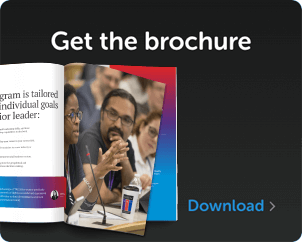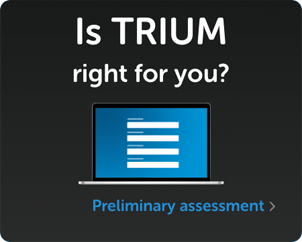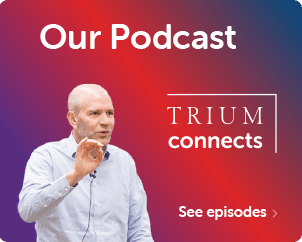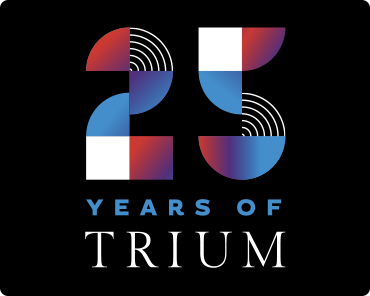
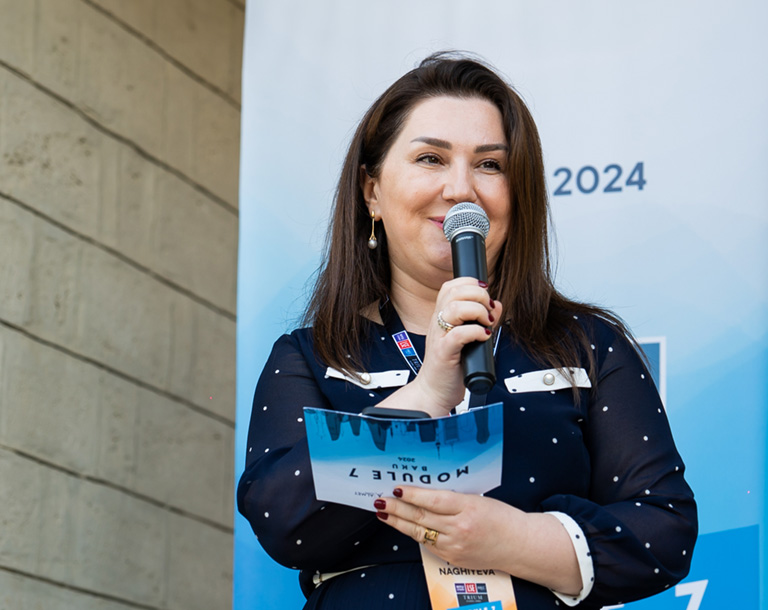
Hayala Nagiyeva
Hayala Nagiyeva (Class of 2023)
Chief Finance Executive and Deputy CEO Azerbaijan Green Energy Company (AGEC)
Hayala Nagiyeva is the Deputy CEO and Chief Financial Officer of Azerbaijan Green Energy Company (AGEC), the country’s first private renewable energy investment firm. Born into a time of national transition during the last decade of the Soviet Union, before its collapse, she has built her career on navigating instability, complexity and change—first as a finance and risk-management leader, and later diving into Azerbaijan’s growing sustainable infrastructure sector.
She shared with TRIUM Global EMBA how the collapse of the Soviet Union during her first year of school and the political conflict for more than past 30 years in her country shaped her worldview, fueling her drive to broaden her geopolitical literacy and paving the way for a bold career shift into sustainable energy investment.
What was your motivation for pursuing a Global EMBA? Why did you choose TRIUM among other global programs?
While leading a first-of-its-kind digital loan project at PASHA Bank, the pandemic hit, and our innovation quickly transformed into a Covid support loan and in a short while into a commercial SME product. During that period not only pandemic but also military regime for the 2nd Karabakh war has started and after 44 days we became different country geopolitically and emotionally. That disruption showed me that to lead in an unpredictable world, I needed more than technical ability—I needed a global perspective.
I was not seeking a traditional MBA, but rather cross-border exposure, diverse peers, and a curriculum rooted in real-world complexity. Initially drawn to the London School of Economics for its geopolitical focus, I discovered TRIUM. Its multidimensional blend of finance, leadership, and international affairs in a truly global classroom was exactly what I was looking for. Understanding business in the context of geopolitical trends is what I was looking for with the mix of the UK, EU, and the US universities.
You were the first generation of Azerbaijani to study under international—not Soviet—standards in Azerbaijan State Economic University. Did the context of your education give you a predisposition to be interested in and intellectually invested in geopolitics?
Absolutely. We lived through rapid, constant change. My first year of school was one alphabet. My second year was another. My first history book told one story; the next year, it told another. Growing up in constant change taught me how fragile systems are—and fueled my drive to understand how they really work. There was always this feeling that things were not stable, that what you know could be undone.
That background sparked my intense desire to understand how systems work: how nations distribute resources, how political and economic structures evolve.
At my 1st year of university, during the meeting with the rector of the university it was proposed to launch English-language economics program, moving beyond outdated Soviet textbooks to Western materials. At the time the president of the university started special faculty. I was one of the 1st ones who joined that group in 2002 and it was risky that time since the faculty did not have status yet. I was lucky and today feel satisfied that I took that risk and preferred the substance of the content over its form. That moment opened my eyes to different perspectives, and it was the beginning of my lifelong interest in comparative systems-something TRIUM helped to bring full circle. Note: Later I did part time teaching at that faculty and at that time it already had a status (smiling).
You have held positions in risk management in the finance and banking sector. How did TRIUM complement your understanding of risk management, particularly in the context of geopolitics and international markets—as they are impacted by global politics and events?
TRIUM has special role in expanding and reframing my understanding of risk management, especially geopolitical ones. At TRIUM you do not treat geopolitical risk as a distant or theoretical concept whether it was trade wars reshaping supply chains, political instability shaking markets, or globalization driving deeper interdependence, TRIUM put me at the center of those conversations.
At TRIUM geopolitical risk stopped being abstract—it became real. I had built my expertise through years in audit, consulting, investment and corporate banking and my understanding of risk as well.
TRIUM helped me see risk not only on a company level, but on an economic and geopolitical level. It sharpened my ability to detect macro threats and analyze second- and third-order effects across industries and nations. That perspective has been invaluable in my transition into renewable energy and sustainable infrastructure. Even though, in 2021,(that time I had no idea I would be leading the green energy transition later), I developed my career plan with coach: within three years, I would step into a global change leadership role with impact —and TRIUM made that possible.
You mentioned that growing up during war and political upheaval created instability. How did that impact your leadership style or sense of confidence?
Growing up in constant change taught me two things: resilience and perspective. When you’ve seen systems collapse and rules change overnight, you learn to stay calm under uncertainty and focus on what you can control. That background gave me confidence not because today everything is more stable and I have lessons learned, but because I know I could adapt. And I believe in power of experience more: nothing can change your mind if your experience proves you the opposite.
It also shaped my leadership style. I value quiet strength—listening first, patience, recognizing others, and building trust—because I know that in times of uncertainty, people look for steadiness and clarity more than volume of anything. And in long term your actions matter more than your words and promises. As a leader you must act more than you talk.
I grew up in an education system, with curriculums shifting and history being rewritten. That is why I had a lack of confidence in political debates. TRIUM helped close those gaps. It gave me the strategic and historical context of current dynamics in geopolitics that I had missed in my early education. That gave me the confidence to speak with authority on the global stage. For me as a person it is another level for sure.
Can you tell us more about the value your cohort and the TRIUM network added to your experience?
True value of diversity was the main takeaway. During one of the modules, we had a corporate strategy discussion where everyone contributed through very different cultural lenses. Even when we were trying to say the same thing, we expressed it differently. What is profound is: only truly authentic and great minds remain open to diversity. Intellectual and cultural differences don’t create barriers, they create synthesis, and that synthesis produces stronger, more innovative outcomes.
That moment was transformative. We’re not better or worse—we’re simply different, and it’s the combination of those differences that drives innovation. At TRIUM, the relationships weren’t just academic; they were deeply human. The real growth came not only from the coursework, but from the collaboration, the friction, and the shared ambition.
Soon after you graduated, you had a career transition from PASHA Bank to AGEC renewable investment firm. What role did TRIUM play in this career transition?
As I said earlier since I designed my career plan in 2021 had the plan to move out from my comfort zone and TRIUM was one of 3 main triggers that played direct role in this change. I was looking for something cross-border, something with both local and global impact, something that would prepare me to lead change. Just a few months later, my longtime mentor, whose strategic vision I’ve admired for over 16 years, invited me to help build and lead a new private investment firm in renewable energy. Everything I had studied at TRIUM: energy, geopolitics, infrastructure, and sustainability came together in this role. Even Module 7, which local alumnus hosted in Baku, focused heavily on energy and created a perfect merge between global purpose and local financial expertise. Together with my TRIUM friends we succeeded participation of very important and influential speakers who own strategic view to various aspects of economy in homeland. Who had made an impact in their fields. It felt like the closure of my wider TRIUM journey as a student.
Speaking of Module 7, what was it like to bring it to Baku? Did that shape your thinking about your home country’s role in the global energy conversation?
It was transformative. For many of my classmates, it was their first time in Azerbaijan and hosting them made me reflect on how far we’ve come—and how much more we can do, as a bridge between East and West. That week affirmed something important for me: I don’t need to move abroad to make a global impact. I can do it right here. Thinking globally but acting locally.
How would you describe your TRIUM experience in three words?
Diversity. Transformation. Impact.


